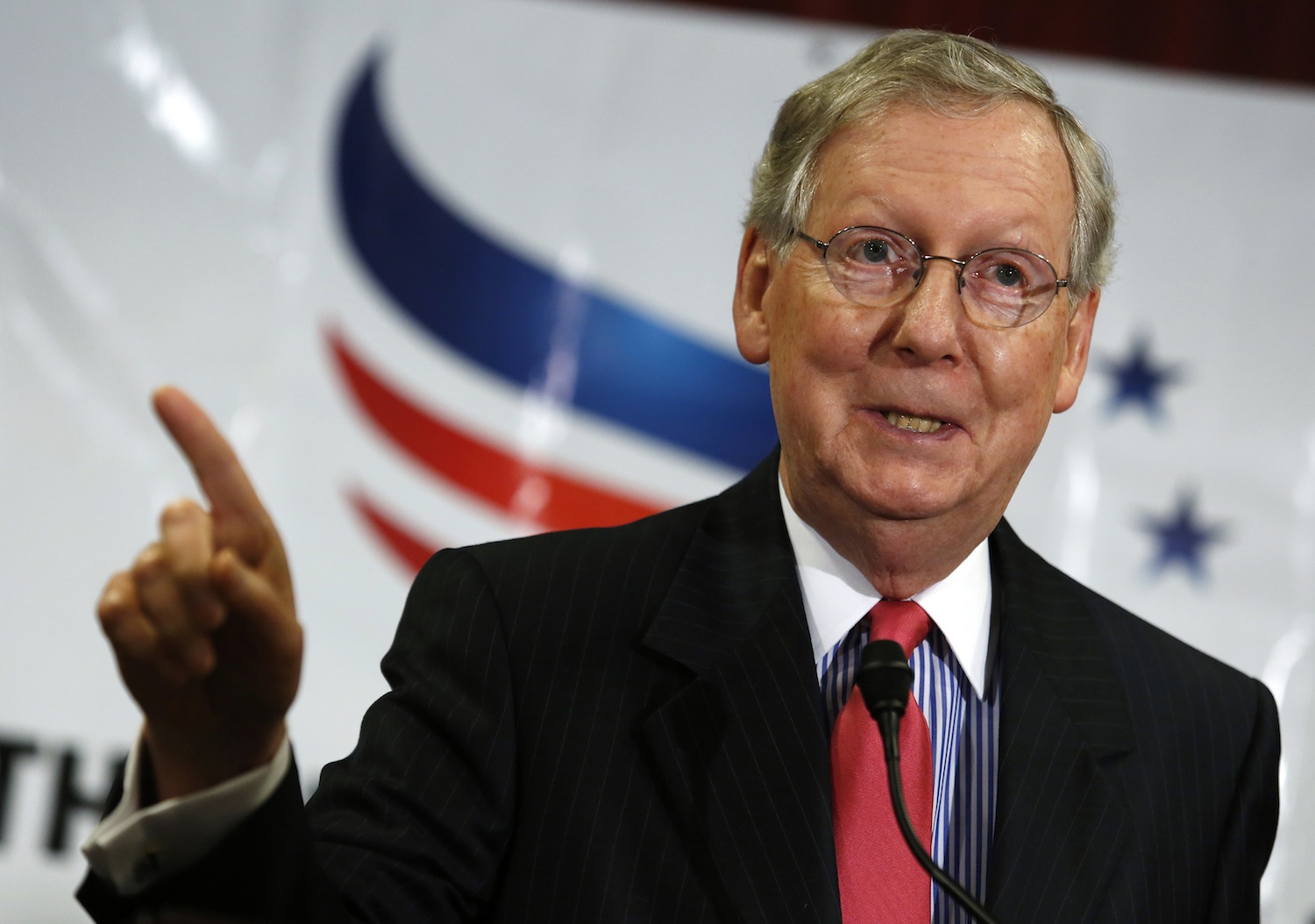
Senate Minority Leader Mitch McConnell (R-KY) speaks at the Faith & Freedom Coalition "Road to Majority" reception in Washington, June 19, 2014. (Reuters/Yuri Gripas)
Many political bookies have tipped the Republican Party to win the Senate in November. This scenario raises a vexing question: Just what will Mitch McConnell do if, instead of opposing and undermining, he must actually govern? In late August, The Nation and the YouTube channel The Undercurrent released an audiotape of McConnell addressing a private strategy session of millionaire and billionaire Republican donors convened in June by the notorious Koch brothers. His comments there, which some have compared to Mitt Romney’s “47 percent” gaffe, are revealing.
McConnell begins by paying tribute to his patrons, thanking the Kochs “for the important work you’re doing” and for “rallying…to the cause.” What is this cause? Putting Americans to work? Rebuilding the middle class? Unleashing free-market answers to catastrophic climate change?
No, even when faced with the prospect of Senate control, McConnell can’t seem to articulate a positive agenda—he envisions only more obstruction. As majority leader, he promises, “we’re not going to be debating all these gosh-darn proposals….All we do in the Senate [now],” he complains, “is vote on things like raising the minimum wage…extending unemployment…. The student loan package the other day,” he continues, ”that’s just going to make things worse.”
McConnell also tells the mega-donors that with Republicans in the majority, he intends to push back “against this bureaucracy by doing what’s called placing riders in the bill. No money can be spent to do this or that.” So what parts of government would McConnell starve? Big Oil? The Pentagon? No, McConnell pledges “to go after them on healthcare, on financial services, on the Environmental Protection Agency, across the board.” Remember the difference, McConnell tells the fat cats arrayed before him: “Democrats are the party of government,” and Republicans are “the party of the private sector.”
Mitch McConnell is surely a man for these times. Big money dominates our politics and corrupts our politicians (including, most recently, McConnell’s campaign manager, who resigned because of his possible involvement in bribing an Iowa legislator to change his support from Michele Bachmann to Ron Paul in the 2012 primary). Legislators like McConnell openly serve “the private sector,” currying its donations and serving its interests. As Senator Elizabeth Warren put it after McConnell filibustered her bill to let people refinance their student debt, “Mitch McConnell is there for millionaires and billionaires. He is not there for people who are working hard, playing by the rules and trying to build a future for themselves.”
Warren went to Kentucky to campaign for Democrat Alison Lundergan Grimes, who is running neck and neck with McConnell, among the most vulnerable GOP incumbents. Partly because of the donations marshaled by the Kochs and their allies, spending in the race may exceed $100 million, which would make it the most expensive Senate race in history.
McConnell ended his talk by repeating the Republican mantra against taxes and regulation: “If we want to get the country going again, we need to quit doing what we’ve been doing. Was it Einstein that said the definition of insanity is doing the same thing over and over again expecting a different result?” Let’s hope the voters of Kentucky come to the same conclusion about re-electing a senator who represents the Koch brothers far more faithfully than the Kentuckians he was elected to serve.
The Editors